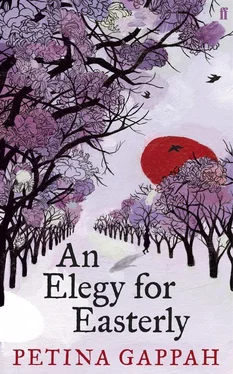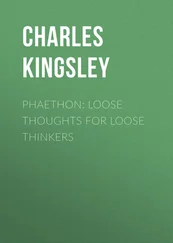Petina Gappah - An Elegy for Easterly
Здесь есть возможность читать онлайн «Petina Gappah - An Elegy for Easterly» весь текст электронной книги совершенно бесплатно (целиком полную версию без сокращений). В некоторых случаях можно слушать аудио, скачать через торрент в формате fb2 и присутствует краткое содержание. Год выпуска: 2009, Издательство: Faber & Faber, Жанр: Современная проза, на английском языке. Описание произведения, (предисловие) а так же отзывы посетителей доступны на портале библиотеки ЛибКат.
- Название:An Elegy for Easterly
- Автор:
- Издательство:Faber & Faber
- Жанр:
- Год:2009
- ISBN:нет данных
- Рейтинг книги:4 / 5. Голосов: 1
-
Избранное:Добавить в избранное
- Отзывы:
-
Ваша оценка:
- 80
- 1
- 2
- 3
- 4
- 5
An Elegy for Easterly: краткое содержание, описание и аннотация
Предлагаем к чтению аннотацию, описание, краткое содержание или предисловие (зависит от того, что написал сам автор книги «An Elegy for Easterly»). Если вы не нашли необходимую информацию о книге — напишите в комментариях, мы постараемся отыскать её.
An Elegy for Easterly — читать онлайн бесплатно полную книгу (весь текст) целиком
Ниже представлен текст книги, разбитый по страницам. Система сохранения места последней прочитанной страницы, позволяет с удобством читать онлайн бесплатно книгу «An Elegy for Easterly», без необходимости каждый раз заново искать на чём Вы остановились. Поставьте закладку, и сможете в любой момент перейти на страницу, на которой закончили чтение.
Интервал:
Закладка:
‘What would the point of lying about a non-existent child? It is not as though I get anything from the government. Why would I say I have a child when I don’t?’
‘If you have this child, why not just bring it?’
‘ Nhai mukuwasha, kana murimi , how can I possibly bring a child to wait in this heat?’
The man pointed at the red-faced babies crying in the heat. ‘So are these not babies? What is so special about yours that you cannot bring it here? Makazvara chidhoma ?’
The babies wailed, their mothers pulled them to their breasts and sat down on the chairs and on the ground to feed them and the babies sucked down the smell from a nearby broken sewer with their mother’s milk.
We did not wait long among the new mothers; we were soon ushered into one of the offices. The man assisting us was all smiles as he said, ‘Have you prepared my parcel?’ When Rambanai handed him an envelope, he opened it, took out the wad of notes, stuck his finger to his tongue and with an expert hand counted out the money. He made a phone call. While he asked Rambanai about America, a young man came with an envelope which contained the birth certificate of Langelihle Chantal Ndhlukula, born on the date Rambanai had dictated, which was two years after the year of her real birthday. ‘I have always wanted to be born in December,’ Rambanai said. ‘This way, I can be a Capricorn. And look, I won’t turn thirty for at least five years.’
This was only the first part; she needed a new ID, and a similarly stuffed envelope secured her a metal ID in record time. That river crossed, we headed towards the grey bungalow which housed the Passport Office, and waited outside Window Number 6 to process the application. The place was crawling with street kids who acted as place holders in the queues while people slept, ate or relieved themselves, and who also offered the benefits of their experience to the waiting applicants. A boy no older than twelve shouted out instructions as more people joined the queue.
‘Make sure you have everything. Long birth certificate, ID, father’s ID, mother’s ID, mother’s and father’s death certificate if deceased, marriage certificate if married, husband’s ID if married, one passport form, two photographs. Hands must be clean for the fingerprints.’
‘ Nhai mwananagu ,’ a troubled elderly woman asked him, ‘they surely can’t want to see the father’s ID. Does that apply even to us, old as we are?’
‘There is no one without a father,’ the boy said. To another woman he said, ‘As for you, sister, I can tell you right away that you are wasting your time. They won’t accept your photos; you need to show your ears.’
As Rambanai and I got nearer to Window Number 6, we heard a dreadlocked man shouting, ‘But it is my religion, this is my religion.’ The woman he shouted at was protected from his anger by a metal grille. ‘Yes, yes,’ she said and bit into a biscuit, ‘it may well be your religion, but that has nothing to do with your passport. We do not allow dreadlocks.’ To the woman who approached her after the dreadlocked man, she said, ‘ Mototorwa dzimwe sister, you are smiling in these pictures. You cannot smile in your passport photo.’
The message spread through the queue. No dreadlocks, artificial hair or any other headgear, no smiling pictures. ‘Why would you be smiling for a passport photo?’ the street kid said with contempt in the direction of the departing smiler, and to the dreadlocked man, ‘As for you, get a haircut.’
When our turn came, we gave the name of the woman who had been referred to us. She smiled as she said to us, ‘Why are you in this dreadful queue, you should have come round the entrance.’ We found our way to the hallowed sanctuary of Office 56, where, in exchange for another envelope, Rambanai was fingerprinted and documented. Thus it went on; in exchange for yet another envelope, someone in Mkwati Building got her police clearance, and a week later, the passport arrived, green and pristine and smelling of new opportunities. Rambanai kissed it when she saw it. She kissed Jimmy too, and I had to nudge him in the back to get him to let go.
‘I will not forget you,’ she said. ‘You must definitely stay with me if you ever visit England. I will repay every cent.’ Ten months after she was supposed to have left for Dallas, Texas, we took Rambanai on another round of goodbyes. We took her to the airport with her suitcase full of sculptures and cloths from the Trading Company. We fought through a crowd of white-garmented people praying over a departing family. ‘Let them go in your name, Jehovah. Guide them through the perils of immigration. Remove the thoughts of Satan from those who would deport them.’ And though she did not join the prayer, I know that Rambanai’s heart was thud-thud-thudding under her tight-fitting pink shirt as she waved to us and walked across to board the British Airways flight to London.

She called to say she had arrived, but as Jimmy and I did not have a landline at the flat, the phone call was to my mother who passed it on to me. Even after I got a mobile phone and passed the number to my mother and to my aunt to give to Rambanai if she called again, she did not call. I expected daily that I would get a letter or a postcard with Buckingham Palace on it, but there was no word. And there was no money.
I even subjected myself to my aunt’s weekly prayer meetings in Mount Pleasant to see if she had heard from Rambanai. I looked for her name on ZimUpdate and ZimUnite and other websites for homesick Zimbabweans abroad until I remembered that she had changed her name and looked for her in her new identity. But there was nothing, only to be expected, I told myself, because Langelihle Chantal Ndhlukula had no history. There would be no one looking for her because she was nowhere, she was nothing.
I did not see Rambanai on the Internet, but memories of her came to me in Harare, in all the places we had visited. I even went to Mbare to get my hair done, but it was not as it had been. Manyara was too sick to talk much, progress was slow as she hacked a cough into my hair as she plaited it. ‘Do you know, your cousin-sister promised to do something for my cousin-brother?’ Manyara said. I promised that I would call Rambanai and do what I could, and I took down Manyara’s number. I paid her all her money even though she had not finished doing my hair and instead of going back the next day, I undid it. I saw her about a year later at the Chicken Inn on Inez Terrace. ‘Do you remember me?’ she said and I knew her instantly even though she was thin in the face and her lips were cracked and pink. I recognised her but I did not want to talk about Rambanai so I pretended that she had mistaken me for someone else.
Exactly one year after Rambanai caught her flight to London, the British embassy imposed visa restrictions on Zimbabweans. Two and a half years after that, Jimmy and I decided to join the three million who had left the country. It was an economic decision, we explained to everyone who asked, it is an economic decision, we said to ourselves, but in our hearts, we knew that leaving our families was the only way to save our marriage. The time had come for our families to expect something, translucent ears, a bulging stomach, an aversion to strong scents, anything that could be evidence of a baby on the way.
‘Is she spitting-spitting, or frowning-frowning yet,’ they asked, and sent emissaries to enquire whether there was anything showing. We had tried, but nothing was happening, or happening quickly enough, and I could no longer bear the looks and the whispered conversations at funerals that stopped as soon as I entered the room. We thought of England then, and my thoughts turned to Rambanai.
Читать дальшеИнтервал:
Закладка:
Похожие книги на «An Elegy for Easterly»
Представляем Вашему вниманию похожие книги на «An Elegy for Easterly» списком для выбора. Мы отобрали схожую по названию и смыслу литературу в надежде предоставить читателям больше вариантов отыскать новые, интересные, ещё непрочитанные произведения.
Обсуждение, отзывы о книге «An Elegy for Easterly» и просто собственные мнения читателей. Оставьте ваши комментарии, напишите, что Вы думаете о произведении, его смысле или главных героях. Укажите что конкретно понравилось, а что нет, и почему Вы так считаете.












